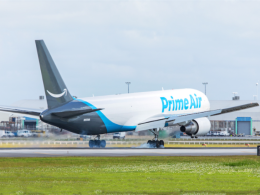Scandinavian Airlines (SAS) has announced the elimination of 37 tons of single-use plastics annually from its onboard operations, a move achieved through the introduction of innovative, plastic-free food packaging. The initiative, launched on 1 December applies to flights departing from Copenhagen, Oslo, Arlanda, and Gothenburg, marking a significant step in the airline’s efforts to enhance sustainability in air travel.
The new packaging, developed in collaboration with suppliers, uses a fully sealed cardboard barrier that meets food-grade standards without traditional plastic coatings. This initiative aligns with SAS’s long-term goal of achieving 100% sustainable materials by 2030. It reflects the airline’s commitment to reducing waste while adopting reusable and biodegradable alternatives.
Aron Backström, SAS Vice President of Product and Loyalty said, “As an airline, our primary goal is decarbonisation, which involves sustainable choices in fleet, fuel, and operations. Replacing single-use plastics on board is a great example of how we are working to address our impact through what we can control today. Eliminating single-use plastics is a tangible way we can reduce our environmental impact immediately, showing how small steps add up in the journey toward more sustainable aviation. We’re also offering this sustainable packaging solution to other food producers, which expands its impact industry-wide.”
SAS’s environmental strategy extends beyond plastic reduction to encompass a comprehensive approach to decarbonisation. This includes fleet renewal, with the adoption of fuel-efficient aircraft such as the Airbus A350 and Airbus A320neo, which substantially reduce fuel consumption and emissions. The airline is also expanding its use of sustainable aviation fuels (SAFs) to decrease reliance on fossil fuels, highlighting its transition to cleaner energy sources. Moreover, optimised flight operations, such as streamlined take-offs and efficient flight paths, contribute to minimising emissions.
Looking ahead, SAS is collaborating with industry partners to pioneer innovations like hydrogen-powered and electric aircraft, aiming to achieve zero-emission aviation in the future.
“Achieving these sustainability milestones requires everyone’s support, and we’re committed to making these changes as seamless and beneficial as possible for all passengers,” added Backström. “While change can feel challenging at first, together we can embrace these alternatives, like biodegradable packaging and reduced waste, for a more sustainable future.”





















